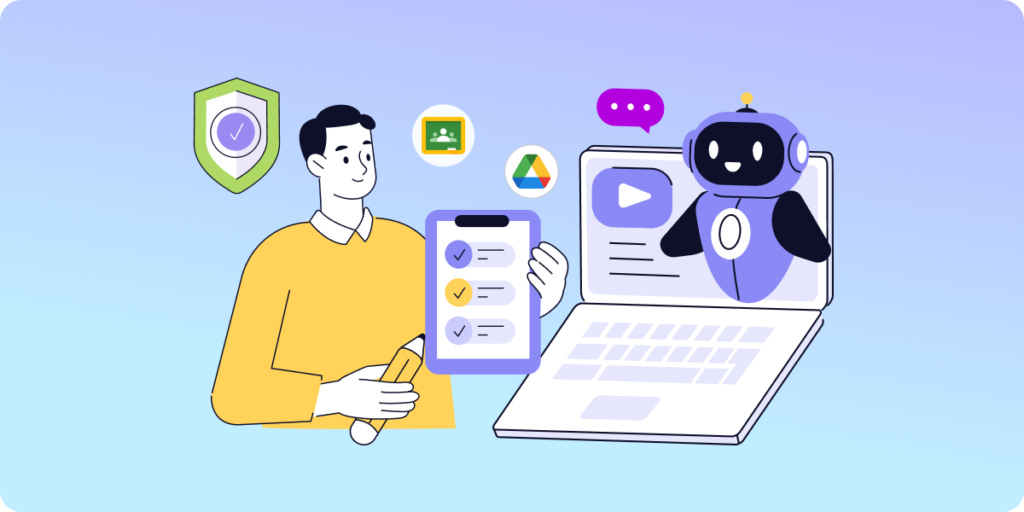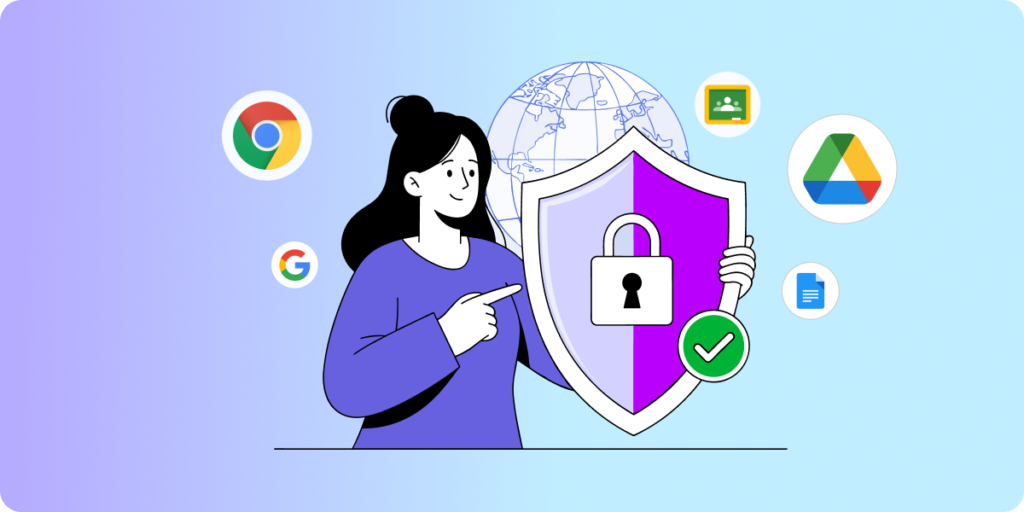As schools increasingly integrate digital tools into their educational frameworks, the importance of student data privacy has surged.
This comprehensive guide is tailored to help schools navigate the complex world of data privacy, equipping educators and Google admins with the knowledge and tools to protect sensitive student information effectively.
The Evolving Landscape of Digital Education
The shift towards a more digital-centric education system has brought numerous benefits, including enhanced accessibility, personalized learning experiences, and innovative teaching methods through platforms like Google Classroom and Khan Academy.
However, this transformation has also introduced significant challenges in managing and protecting student data. The surge in the use of digital tools has made data privacy a paramount issue. For instance, the widespread adoption of cloud-based services like Google Drive has increased the complexity of safeguarding sensitive information.
Understanding Federal Laws: FERPA and COPPA
At the forefront of student data privacy are two critical federal laws: The Family Educational Rights and Privacy Act (FERPA) and the Children’s Online Privacy Protection Act (COPPA).
FERPA sets the standard for protecting student records, granting rights to parents and students over their educational records. Meanwhile, COPPA focuses on online environments, requiring verifiable parental consent for collecting data from children under 13.
Compliance with these laws is a legal obligation and a moral imperative to maintain trust and integrity in educational settings.
State Laws and Their Implications
Beyond federal mandates, nearly every U.S. state has established laws governing the use and protection of student data in K-12 schools.
Educators and Google Workspace admins must stay informed about their specific state regulations, which can be referenced through resources like Student Privacy Compass.
Understanding and adhering to these laws ensures that educational institutions operate within legal boundaries while safeguarding student information.
Edtech Providers: Certifications and Commitments
When choosing EdTech providers, several certifications and pledges, like the Student Privacy Pledge 2020 and SOC 2 Type 2 certification, serve as benchmarks for data privacy and security.
Although not mandated by state or federal law, these certifications reflect a provider’s commitment to the highest levels of data privacy and security.
The Role of Bug Bounty Programs
Bug bounty programs are like reward systems set up by tech companies. They invite security experts and ethical hackers to find and report any weaknesses or problems in their software. When these experts discover a flaw, they report it to the company, and in return, they often receive a reward or ‘bounty.’
These programs are important because they help EdTech companies find and fix security issues before they can be exploited. By doing so, they make the digital tools used in schools safer for students.
Student Activity Monitoring and Privacy Concerns
The implementation of student activity monitoring software in schools has raised significant privacy considerations. While these tools are invaluable for student safety and wellness, it’s crucial to balance monitoring with privacy.
Tools like GAT Labs offer a more privacy-conscious approach to monitoring, minimizing exposure to sensitive student data.
Furthermore, GAT Labs proudly maintains SOC 2 certification. This is a testament to our unwavering commitment to the highest standards of data security and privacy in managing and protecting user data within Google Workspace environments.
Note: Visit our Customer Success Stories to learn more about how your school can benefit from our tools.
Key Questions for Edtech Providers
To ensure a thorough understanding and commitment to student data privacy, educational institutions should inquire about various aspects of an ed-tech provider’s practices.
Questions should cover data collection, storage, security audits, certifications like SOC 2 Type 2, and the specifics of student wellness monitoring.
These inquiries will help schools make informed decisions that align with their commitment to student privacy and security.
Conclusion
In conclusion, navigating student data privacy is essential for educators and administrators in the digital world. First, they need to understand and follow federal and state laws. Then, by balancing student activity monitoring, schools can create both a secure and privacy-respecting learning environment.
With tools like those offered by GAT Labs, schools are better equipped to manage, secure, and audit their Google Workspace environments, thus upholding the highest standards of student data privacy and security.
Join our newsletter for practical tips on managing, securing, and getting the most out of Google Workspace, designed with Admins and IT teams in mind.





